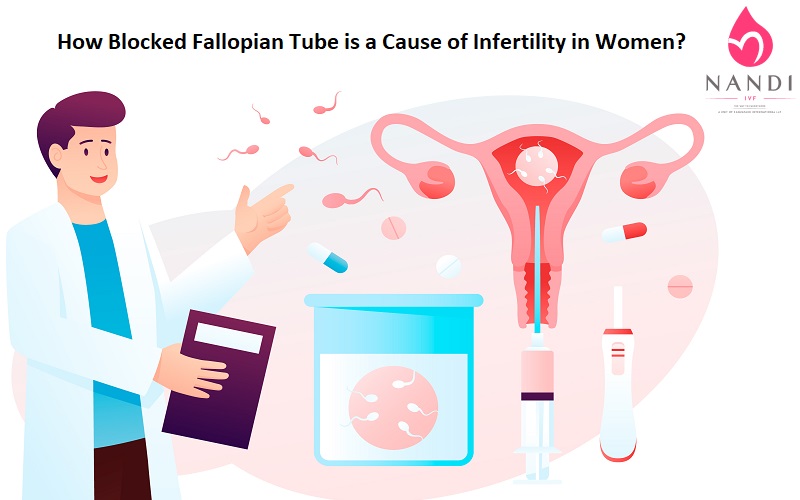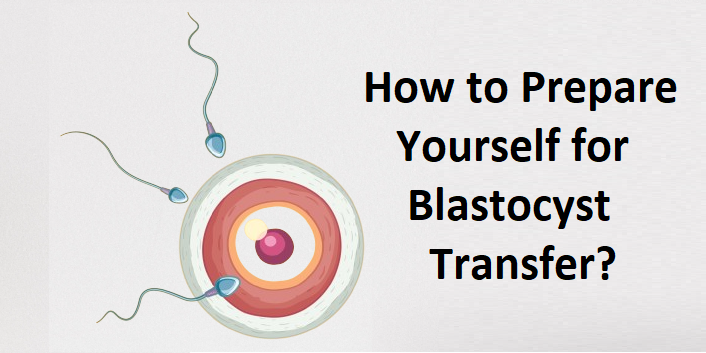Infertility is the condition defined as the inability to conceive even after trying for one year of unprotected intercourse. It affects around 15% of couples globally. Many factors could be at play, including increasing age, hormonal changes, or complications on the male side. However, one simple anatomical reason could be wreaking havoc in silence – blocked fallopian tubes.
In this blog post, we will explain what fallopian tubes are and how they can get blocked and affect your fertility.

What are Fallopian Tubes?
The fallopian tubes are a pair of narrow, hollow tubes that connect the ovaries to the uterus. Each month, when an egg is released from the ovaries, the fallopian tubes help guide the egg from the ovary to the uterus. Tiny hair-like projections called cilia line the inside of the tubes and help push the egg along.
The Fertilisation with sperm usually happens in the fallopian tube. Then, the fertilized egg continues down toward the uterus, taking several days to get there. Once it reaches the uterus, it will implant itself into the uterine lining.
If the fallopian tubes get damaged or blocked, this critical function gets impaired. An obstructed tube prevents the egg from travelling from the ovary into the uterus. It also hinders the sperm from reaching the egg. This eventually makes natural conception impossible. However, consulting with an IVF doctor in Delhi can help get an accurate diagnosis and cope with the situation.
Blocked Fallopian Tubes Causes
Blocked or damaged tubes affect over 30% of women struggling with infertility. There are a few different causes of blocked fallopian tubes. Some of the most common causes suggested by the best IVF in Delhi include:
- Pelvic Inflammatory Disease (PID): PID is most often caused by sexually transmitted bacteria like chlamydia and gonorrhoea. It can cause inflammation and scarring that blocks the tubes.
- Endometriosis: Cells similar to those that line the uterus grow outside the uterus, sometimes on or around the fallopian tubes. This can also lead to fallopian tube blockages.
- Past Surgeries: Operations involving the lower abdomen sometimes lead to scarring or adhesions on or around the tubes. Additionally, C-sections, appendectomies or ectopic pregnancies can also occasionally damage the tubes.
- Birth Defects: Some women are born with abnormalities in the shape and structure of their reproductive organs, which can obstruct the fallopian tubes.
- Previous Ectopic Pregnancy: An ectopic pregnancy that implants in the fallopian tube itself and requires surgical removal can cause scarring and eventual blockage of the fallopian.
Types of Blocked Fallopian Tubes
Three main types of blockages can occur in the fallopian tubes:
- Proximal Tubal Occlusion: It refers to a blockage at the top portion of the fallopian tube, closest to the ovary. This prevents the egg from entering or passing through the tube after ovulation.
- Midsegment Tubal Obstruction: This results when a blockage occurs in the middle section of the fallopian tube between the ovary and uterus. Midsegment obstruction creates a barrier along the passageway that keeps the egg from reaching the uterus.
- Distal Tubal Occlusion: It refers to a blockage at the end of the fallopian tube near its opening into the uterus. Even if the ovary releases an egg and travels down the tube, it hits a literal roadblock at the end and cannot enter the uterus to implant.
Blocked Fallopian Tubes Treatment
Treatment options for blocked fallopian tubes include:
- Surgery: Laparoscopic surgery can be done to remove scar tissue, adhesions, endometriosis lesions, or fibroids that are obstructing the tubes. However, the success rates are only around 30%. There are also risks of complications like infection and re-occlusion of the tubes after surgery.
- IVF: In vitro fertilisation involves combining eggs and sperm in a laboratory dish to create embryos. The embryos are then transferred into the uterus through the cervix, bypassing the need for open fallopian tubes altogether. Smart IVF success rates are as high as 65% per cycle for women under 35. However, you can still face certain failed IVF cycles due to underlying physiological issues.
- Tubal Cannulation: A thin catheter is threaded through the cervix, uterus and obstructed fallopian tube to attempt to open up the blockage. The success rate of this procedure is quite low.
- Assisted Reproductive Technology Using a Gestational Carrier (Surrogacy): Even if IVF treatment in Delhi isn’t a good option for you, using a gestational carrier or surrogate is sometimes possible. Your egg is fertilised using your partner’s sperm and then transferred to another woman who carries the pregnancy.
Seeking a Second Opinion From an IVF Specialist
Because assisted reproductive technology like IVF often offers the best chances post-blocked tubes, getting a second opinion from a fertility specialist is wise. They will be able to provide clear statistics and success rates for the latest IVF treatment options.
At Nandi IVF, we have highly experienced IVF specialists in Delhi and advanced medical technology that can help guide your family planning decisions. We offer comprehensive fertility solutions and advise on the optimal courses of action, whether that may involve surgery, IVF using your eggs or exploring gestational carriers/surrogacy.
Final Words
The road through infertility can be full of twists and turns. But you don’t have to navigate it alone. Reach out to compassionate fertility experts at your preferred IVF centre in Delhi, who will thoughtfully explain all your options while treating you like family!









